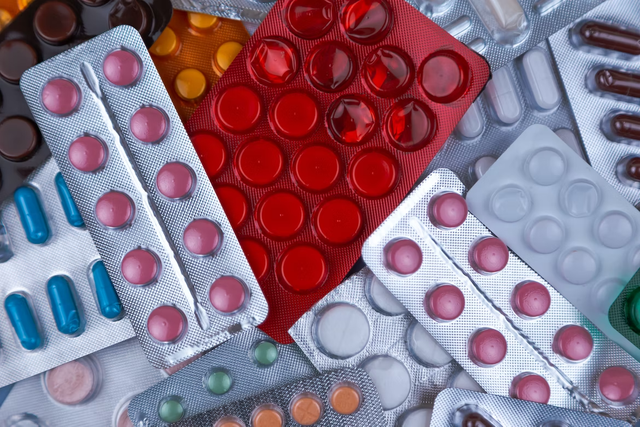
Posttraumatic stress disorder (PTSD) affects millions of people around the world. Many think it only happens to veterans, but this anxiety disorder can occur from exposure to any dramatic incident. It makes day-to-day life difficult by causing insomnia, stress, depression, and more.
If you have PTSD, you might think you'll never get your old life back, but that's not true.
Fortunately, effective treatments are available for those battling PTSD, including psychotherapy, synthetic drugs, and the newly-accepted cannabis. Below, we will explore these three options and dig deeper into medical marijuana to see how it can help your PTSD.
Psychotherapy
Different types of psychotherapy can be used to treat PTSD patients, such as:
Cognitive Therapy
Helps you identify destructive thinking patterns and eliminate them.
Exposure Therapy
Helps you face traumatic incidents and eliminate flashbacks.
While these methods are helpful, they are more effective when paired with medications.
Synthetic Medications 
Direct drugs like anti-depressants and anti-anxiety medications can help alleviate severe anxiety and depression in PTSD patients. Medications like Zoloft and Prozac may be prescribed to help with the symptoms. However, they have dangerous side effects such as agitation, exhaustion, insomnia, sexual problems, etc.
Natural Medication ⏤ Cannabis
Another option for alleviating the signs of PTSD is cannabis, also known as marijuana. This plant has been used for medicinal purposes for thousands of years. Now, you can get a medical marijuana card online and use it to access cannabis legally. It's available in pre-rolled cones and joints for smoking. You can also get raw buds or dried leaves and make edibles.
Components of Cannabis
Different compounds of the cannabis plant work together to improve your PTSD. Let's look at the most notable ones.
Cannabinoids
Cannabinoids are active ingredients of the cannabis plant that interact with your body's endocannabinoid system (ECS). This system is responsible for regulating different functions in your body, such as pain, sleep, and mood.
THC and CBD are two of the most common cannabinoids with promising medicinal properties. THC is the psychoactive cannabinoid associated with the high people feel when smoking marijuana. Meanwhile, CBD is non-psychoactive yet effective for PTSD. The effectiveness of cannabinoids against PTSD was evaluated in a one-year study as participants reported a significant decrease in their symptoms.
Terpenes
Terpenes are organic components of cannabis that also exist in other plants. They act as a repellent against harmful insects while creating characteristic aromas. The smell of pines, citrus fruits, and other plants comes from terpenes.
They are also abundant in cannabis. Research shows that they have calming effects and numerous other health benefits. Studies exploring terpenes in cannabis suggest that terpenes in certain strains of cannabis can improve sleep in PTSD patients.
Flavonoids
Flavonoids are polyphenols that give plants their vibrant colors. Cannabis plants have a rich supply of flavonoids with anti-anxiety potential. Studies show that administering flavonoids to chronically-stressed animal models and those with PTSD produced antidepressant-like effects. With further clinical trials, the efficacy of flavonoids against PTSD in humans can be proven too.
How Does Cannabis Help With PTSD?
Cannabis can make living easier for PTSD patients by:
Improving Sleep
PTSD patients suffer from various sleeping disorders, such as insomnia. Studies suggest that CBD can improve sleep quality, resulting in a restful night of sleep. Those who use CBD oil before bed report that they can fall asleep faster and stay asleep longer.
Reducing Stress
Stress and anxiety are the main signs of PTSD. Studies have examined the effects of cannabis on the fear response of PTSD patients. They show that THC regulates threat processing in this group, helping them react accordingly and experience less stress.
Alleviating Depression Signs
PTSD patients battle with depression daily. Research suggests that cannabinoids can help them win this fight by affecting the serotonin receptors in the brain. Serotonin regulation can lead to the feeling of happiness and alleviate the signs of depression.
These are just some of the ways cannabis can benefit PTSD patients. With more human research and clinical trials, we can expect to see cannabinoid-based medications soon.
Other Medicinal Benefits of Cannabis
Cannabis has shown promise for other conditions as well. Here are some of them:
Blood Pressure
Using cannabis is proving to be one of the natural ways to lower your blood pressure. One study evaluated the resting blood pressure of human subjects as well as their blood pressure after stress tests. It showed that CBD managed to decrease both.
Pain and Inflammation
Multiple studies have pointed to CBD’s potential to reduce inflammation and pain in those suffering from inflammatory conditions. Many athletes now use this property of CBD to recover from strenuous workout sessions.
Gastrointestinal Disorders
New studies show that cannabinoids may be able to treat and even prevent gastrointestinal issues like irritable bowel syndrome, ulcerative colitis, and inflammatory bowel disease.
Epilepsy
CBD’s anti-seizure properties are well known. Studies show that this cannabinoid can reduce the symptoms and frequency of seizures. Even the FDA has approved a CBD-based drug for epilepsy called Epidiolex.
Cancer
Cannabis has been shown to benefit cancer patients in multiple ways. Not only can it reduce chemotherapy-induced nausea, but new studies suggest it can also prevent cancer cell growth and tumor formation.
Put Your Health First
Each patient responds differently to treatments. You may recover with psychotherapy or need medications. While not all questions about cannabis are answered yet, current evidence suggests that it’s a safe option to try. That is because cannabis is an all-natural product, unlike synthetic drugs with dangerous side effects. However, if you're dealing with PTSD, it’s best to consult your doctor before taking anything. So put your health first to get better.